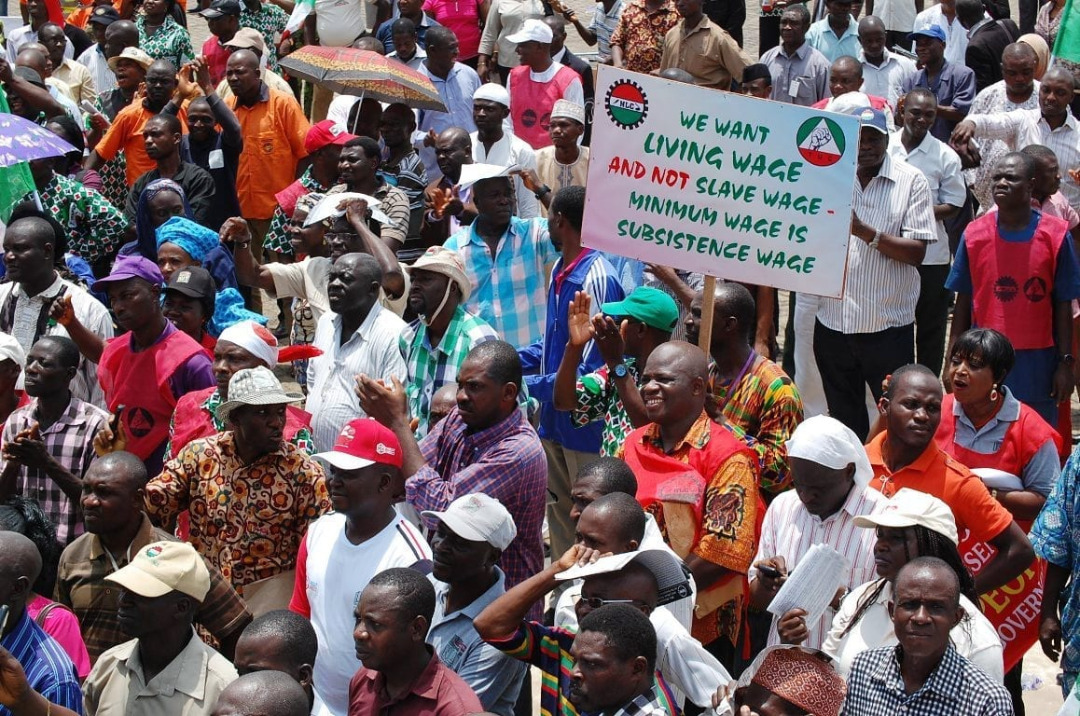From the wisdom box of sages comes the saying that the tree that bears fruits will always be stoned. The wise ones who bequeathed this saying may not have completely captured the price of success in a place like Nigeria. The tree that bears fruit in a context such as we have in Nigeria, is not only pelted with stones. If care is not taken, the tree may even come under attacks of adversaries with the sinister intentions to get it completely mowed down, and put out of the business of bearing fruits. This reality implies that anyone with the noble intention of planting in Nigeria would have to prepare adequately for not only those who throw stones because they see value, but also for those who are out to eliminate what has been planted probably because they lack the enterprise and acumen to achieve such a milestone.
One corporate entity, which has lived this experience time and again, is Air Peace Airline. Even after the owner was ready to start, it took him years of struggle to eventually bag the required approvals. Shortly after its operations finally took off in 2013, Air Peace struggled, not in the sphere of delivering world class service, but in the realm of perception. There was an avalanche of unflattering scrutiny and much chatter about how the business originated, who was behind it, and where the owner found the funds to come forward with such an ambitious project. The vision and mission may have been too intimidating for an industry that was used to average efforts. As such, unable to grapple with the depth of the project, the startled interlocutors sought to reduce it in their mind. The critics showed no interest in key indices, such as the number of direct and indirect jobs, which the venture would add to the economy, and how the ancillary effects of the business will impact on lives and livelihoods. While scrutiny from society is welcome in the spirit of transparency and accountability, the type of destructive inquest the airline faced at its infancy was not driven by any noble objective. The traducers were apparently more concerned about demonising the venture than understanding the big picture of benefit for the economy in specific terms of jobs, effect on lives and livelihoods.
As such, in the take off period, the Air Peace brand had to fight to overcome the perception problems created by stone throwers, who sought to portray it as a business, which was being used as a front by a group of corrupt public officials, who had stolen the nation’s wealth. Even till this day, those hurling pebbles at the airline have not relented. They still find ways to make unsubstantiated claims that a former first lady is the actual owner of the airline. This particular falsehood, the peddlers insist is valid because the name of the airline sounds similar to Mama Peace, the sobriquet of the former first lady. All pronouncements to the contrary by the real owner of the business, Barrister Allen Onyema, have failed to sway those peddling the story. After contriving an ownership and identity crisis on the fledgling business, Air Peace’s traducers went on to declare with all sense of magisterial assurance that the business would collapse in no time on account of the alleged shady source of funding for its establishment. Interestingly, contrary to those doomsday predictions, Air Peace has not collapsed like a pack of cards as ominous predictors believed. Rather, the airline has roared through Nigeria’s aerospace to position itself as an industry leader. Its refusal to capitulate left its traducers befuddled; the stone throwers were also left stunned by the magnitude of successes the airline recorded in such a short time in the sector. An airline, which had been dismissed by naysayers and sentenced to a short lived existence, actually began growing in leaps and bound. In the domestic market, it quickly cemented its place with the acquisition of brand new aircrafts. This feat was unprecedented in a domestic market, where buying second hand planes was considered an achievement.
Despite the milestones refused to rest on its oars or be limited in its scope. Soon it started making forays into the international routes that used to be the exclusive preserve of foreign airlines. The push for a better deal for customers saw the airline introduce disruptive strategies to shake up the existing pricing regimes. On several routes where the pricing was fixed, and deemed unchangeable by foreign airlines, and presented to Nigerians as fate accompli, Air Peace demonstrated the fact that with free market competitions, consumers could get the benefit of options. Customers would then be the kings and queens as they would be free to choose from a broad range of options. A real life example of Air Peace shaking up things and changing the hitherto dominant price narrative is the Dubai route. Before the ascendancy of the Nigerian airline, the route was the exclusive preserve of the Gulf Airlines. Air Peace came in and shook up things with the result that many Nigerians had pricing options of 50 percent less than what the Gulf carriers dominating the route had on offer.
Importantly, Air Peace went beyond the bounds of business, and the lure of profit to render national service at critical times, when Nigeria as a country, needed such interventions the most. In September 2019, when South Africa became too hot and hostile for Nigerians as a result of the threats of xenophobic violence, Air Peace was the only airline that took the initiative to come to the rescue of stranded compatriots. The airline’s actions invoked a lost sense of patriotism and national pride by working closely with key institutions of government to airlift stranded Nigerians out of South Africa. The emotional scenes inside the airplanes and in the airport when stranded Nigerians touched down on home soil, sang the national anthem and embraced one another irrespective of ethnic diversity was a rousing moment of national healing, unity and solidarity.
In those touching national moments, Air Peace presented another side of the motive of business beyond pecuniary gains, which hardly ever comes to the fore in the Nigerian context. The airline demonstrated the possibility of businesses giving back to society, in terms of value, upholding national dignity and empowering people. These gestures, all in the service of the national interest did not happen on the spur of the moment. Those interventions to support the nation and give hope to its people have long been part of the business strategy of the airline. Ever since it was founded, Air Peace has deliberately refused to operate the business model defined by the normal cut throat, grab-all, and clean it out mentality of typical private sector players. Rather, the airline has been running with a vision of itself as a social enterprise meant to touch the lives of people. The airline has also been driven by the idea of bringing to life Nigeria’s manifest destiny as the leader of the black race. This philosophy has no doubt informed the effort, which the Air Peace brand has devoted to doing national service, and practically demonstrating that patriotism is possible even in these difficult times when many Nigerians are retreating into their sectional enclaves.
Unfortunately, for all its efforts, the airline is yet to receive the level of support commensurate to the many sacrifices it has made for Nigeria. Many of its adversaries, especially the foreign interests, seeing what they stand to lose if the Air Peace business model succeeds, are sponsoring vicious attacks to undermine the brand at home and abroad. Old stories, which have for long been discredited and trashed are being rehashed to undermine the business and its brand value. In climes where the leadership understands its strategic economic interests, any travail experienced by a business like Air Peace would attract the attention of the state to ensure the business is not adversely affected. In such instances as seen in the West, Asia and Middle East, soft and hard power assets would be mobilised to ensure the survival of the business. In the end, it is with airlines, which have the backing of their respective governments that Air Peace will continue to compete. Since Nigeria at the moment does not have a national carrier, it is only an airline like Air Peace, which has shown its commitment to Nigeria’s national interest that can give the country a voice. For the airline to be able to play that role, it needs the government and the people of the country to provide the needed backing. The process of recovery from the crisis precipitated by the COVID-19 pandemic could be a good starting point to strengthen the arm of nationally relevant businesses like Air Peace. Notwithstanding the antics of those who want it out of the space, Air Peace will move on to greater things. However, the airline’s impact and its wider relevance to Nigeria’s strategic economic interest will depend largely on the extent to which the government is willing to provide the backing required leverage on the airline’s vast ambitions.























